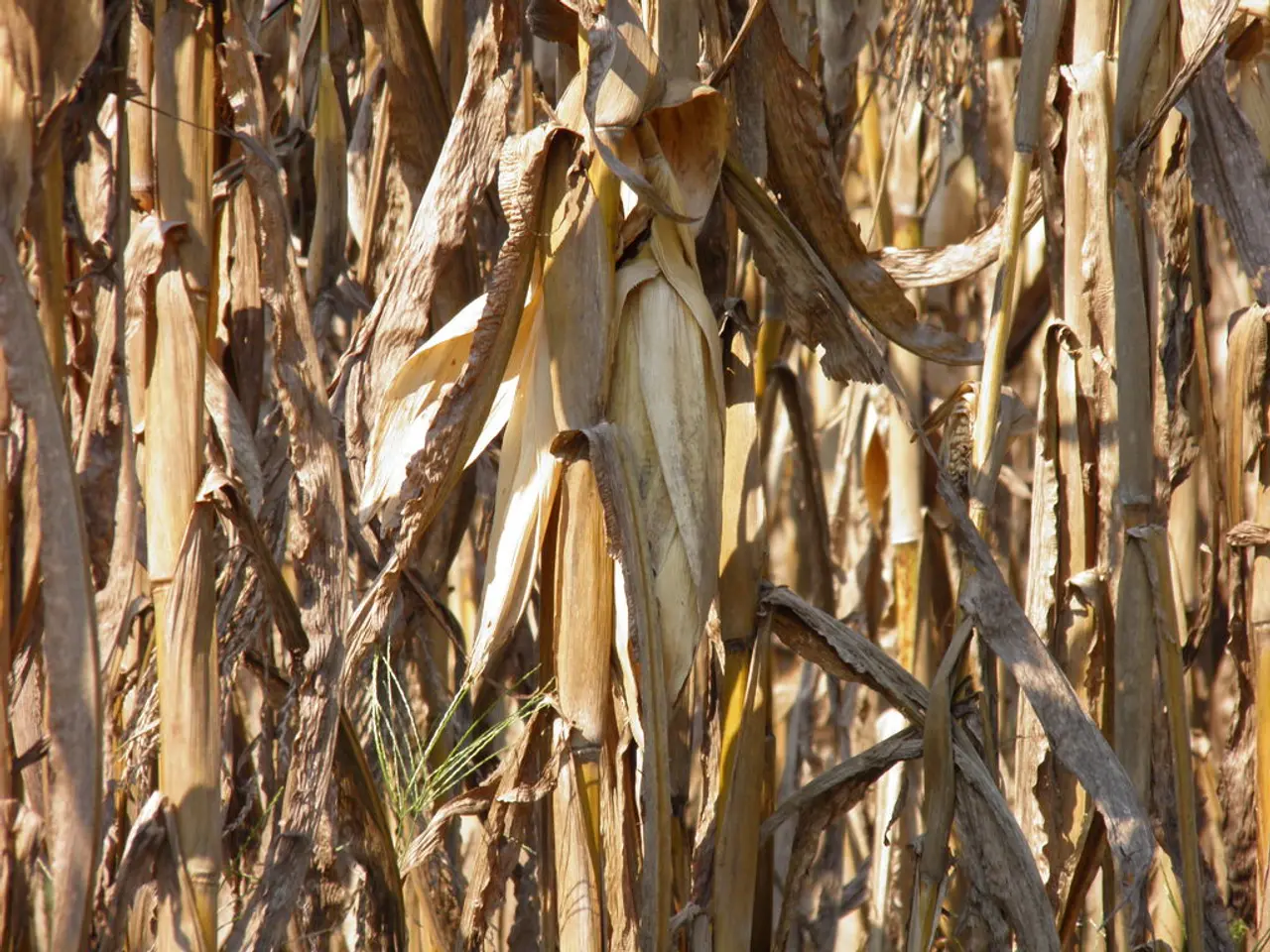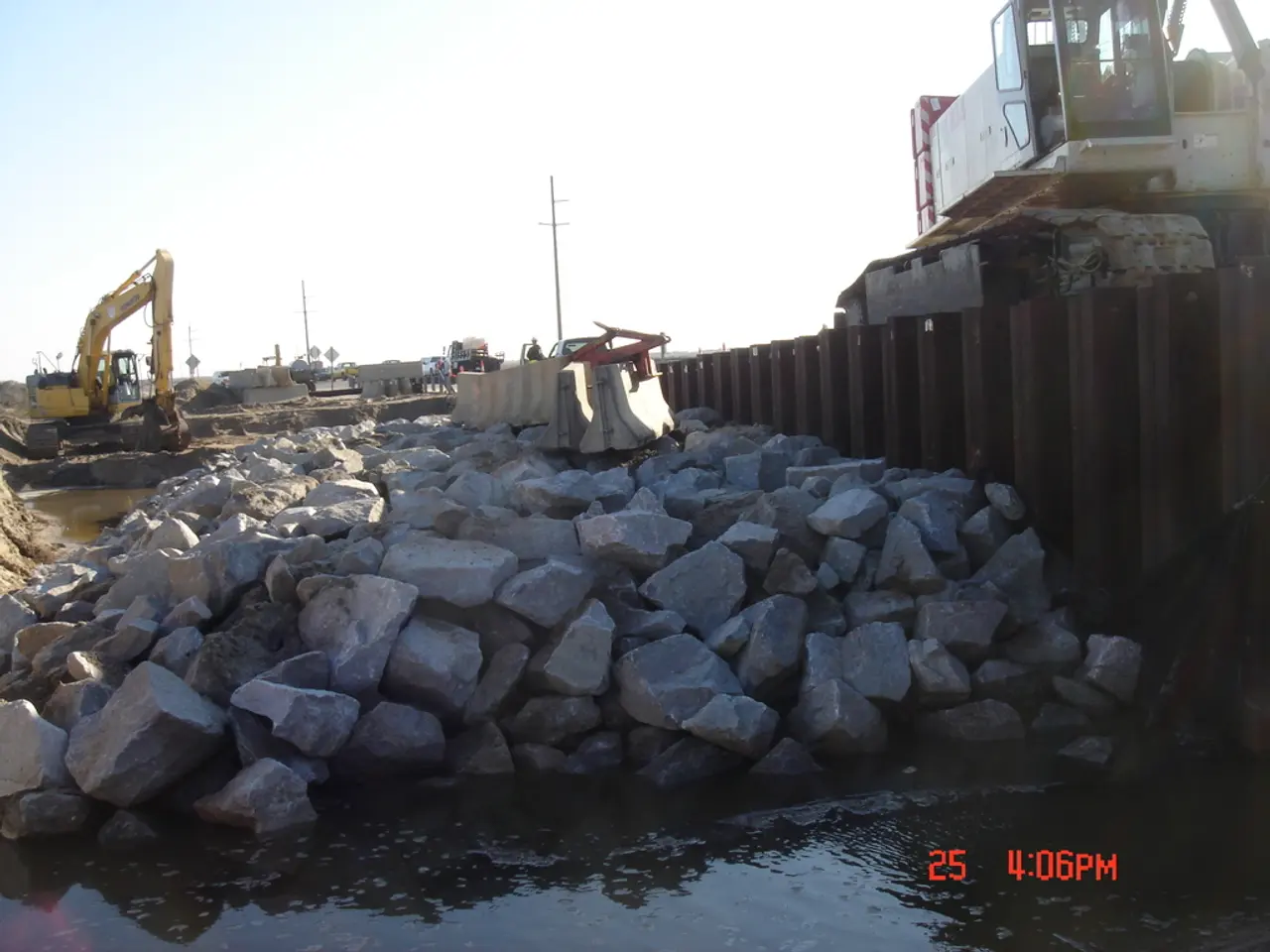Inclement weather poses a threat to the wheat harvest in Lower Saxony - Harvest in danger: Heavy rainfall endangers cereal crops in Lower Saxony
Heavy rainfall in Lower Saxony, Germany, has been causing concern among farmers, as the excess moisture has affected the quality and yield of the grain harvest. The wet conditions have led to waterlogged fields and flooding, which are unfavourable for crop maturation and harvesting.
The heavy rainfall can cause grain sprouting, spoilage, and delay the timely harvest, thereby reducing both quality and yield. This has been a recurring issue for farmers in Lower Saxony, who have had to repeatedly pause their harvesting due to the rain.
Wet grain needs to be dried before storage, a process that is energy and cost-intensive. If not properly dried, the grain can only be used as animal feed, resulting in substantial economic losses.
According to Christopher Hanraets, spokesperson for the Lower Saxony Chamber of Agriculture, the situation remains tense but is not yet critical. By the end of July, only 16 percent of the winter wheat and 45 percent of the winter rapeseed had been harvested in Lower Saxony, indicating a delayed harvesting season.
The weather forecast for the next seven to ten days could lead to significant quality losses in the remaining grain harvest in Lower Saxony. If the weather continues as forecasted, the economic losses for farmers in Lower Saxony could increase.
Regional showers across Lower Saxony in recent weeks, some of which were quite heavy, have exacerbated the situation. Farmers in Lower Saxony have to frequently check if the grain has reached the quality criteria for moisture.
The Lower Saxony Farmers' Association shares the concerns about the weather. Christopher Hanraets stated this concern to the "Hannoversche Allgemeine Zeitung". The harvesting of winter wheat and winter rapeseed in Lower Saxony is behind schedule, and long harvesting days have been the exception for farmers in the region.
While the exact impact of the 2023 grain harvest in Lower Saxony is not yet fully known, the broader situation of extreme weather variability in Europe, including Germany, underscores this issue. Heavy rainfall events linked to pluvial flooding have been documented in areas of Germany in 2023, including Braunschweig in Lower Saxony, compromising agricultural land conditions. Similarly, across northwestern Europe, unusual rainfall patterns have disrupted crop growth phases, sometimes halting progress due to waterlogged soils.
In light of these challenges, farmers in Lower Saxony are hoping for more favourable weather conditions in the coming days to ensure a successful and profitable grain harvest.
Vocational training programs in the agricultural sector could provide local farmers with the skills necessary to effectively manage crops in challenging weather conditions, potentially reducing economic losses. This community policy proposal is particularly relevant in light of the repeated weather-related issues faced by farmers in Lower Saxony over the past months.
As the weather forecast predicts more heavy rainfall in the coming days, it is crucial for farmers to keep a close eye on grain quality, particularly moisture levels, to prevent any further quality losses or contamination during the ongoing grain harvest in Lower Saxony.








